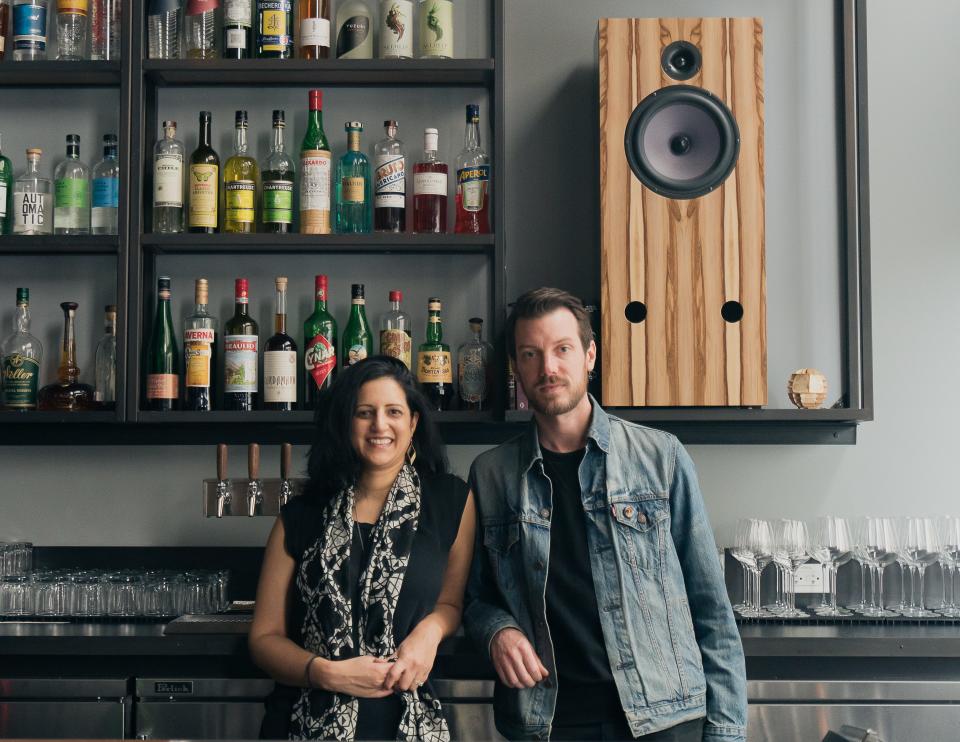Winter is coming, and millions may lose their jobs in restaurants and hospitality
Once the pandemic shutdown lifted this spring, Shirin Raza set up outdoor tables where customers at her drinking establishment, Bar Shiru, could order cocktails, like the Tokyo Traffic or a flight of whiskey.
But approaching winter weather will soon put an end to outdoor seating at the Oakland, California, bar she co-owns with her husband. She looked into buying heat lamps to keep customers comfortable, but she couldn’t justify the $10,000 cost.
She's not only worried about getting through the winter as her bar shifts to take-out orders, she's also concerned about her staff, which has already been cut down to four from the 10 employed prior to the pandemic. She adds that she's optimistic she'll find resources to maintain her payroll, but her anxieties are rising in the absence of more stimulus aid.
“The biggest thing we are stressed and worried about is what it means for the team, especially in the absence of any aid package,” Raza said, referring to a lack of further relief money from the federal government. “If aid doesn't come through, I don't foresee having money to keep them on, unfortunately.”
Raza is not alone in her concerns. Many hospitality and retail businesses in colder-weather regions such as New England and the Midwest will face challenges as winter arrives, according to a recent economic study from Gusto, a company that provides payroll and other services to businesses.
At the same time, hospitality businesses are facing another set of challenges.

Black Friday hours: When Walmart, Target, Best Buy and others open their doors Friday amid COVID-19
No relief: From extended jobless benefits to student loan reprieve, COVID-19 relief set to fade at year's end
There's the absence of additional stimulus funding that could help aid the purchase of cold-weather equipment or keep staff on payroll, as well as a resurgent pandemic that’s prompting lawmakers across the nation to institute new restrictions. Vermont, for instance, has ordered its bars to close to in-person service through December 15, and California has instituted a 10 p.m. curfew in some hard-hit counties. Los Angeles County this weekend went a step further, deciding to shut down all dining at restaurants, breweries and bars for at least three weeks beginning on Wednesday as COVID-19 cases spike.
Those actions have prompted warnings from economists and industry groups that the restaurant and hospitality industry could face a bleak winter.
“Tens of thousands of additional restaurant bankruptcies – and millions of lost jobs – are now more likely” due to new state restrictions, according to a Nov. 17 letter from the National Restaurant Association to the National Governors Association.
Almost 3M jobs could be lost
Between 1.4 million to 2.8 million jobs that have been recovered since April could be lost from the impact of winter weather, with many of the losses projected to hit restaurants, retail and other hospitality businesses, Gusto found in its analysis. Its economist, Luke Pardue, told USA TODAY he now believes the potential job losses have “moved more towards the 2.8 million number.”
He adds, “The 1.4 million estimate was based on the arrival of cold weather and no aid for retail shops, bars, and restaurants to keep operating. The significant spike in cases and new restrictions – with still no aid in sight – will likely cause a much broader pullback in economic activity.”
To be sure, some restaurants are investing in equipment that will allow them to continue outdoor service even in extreme weather. Some establishments are creating outdoor “bubbles,” or small tents to keep the cold air out, says Justin Hill, principal at design firm MG2, whose clients include restaurants and retailers.
But deciding whether to invest in such equipment is “the hard part for a lot of these restaurants,” Hill noted. “As they struggle, they may either have to invest more to try to survive or shut down.”
COVID-19 closes 19,000 restaurants
Through August, more than 19,000 restaurants have permanently closed, according to a Yelp analysis. The arrival of winter weather could particularly affect smaller U.S. cities that have a larger reliance on restaurants and other hospitality businesses, Gusto predicts. For instance, East Stroudsburg, Pennsylvania, and Santa Fe, New Mexico, are among the cold-weather cities at most economic risk, given that about 4 of every 10 workers in those cities work in retail, leisure, or hospitality jobs, their analysis found.
Some shop owners say they’re getting support from customers.
Suzanna Cameron, the owner of florist Stems Brooklyn, which was hit by a loss of weddings and other events when the pandemic hit, notes that “a lot of our customer base is aware that they need to shop small if they want to keep the businesses around."
But Raza of Bar Shiru says more aid is needed from lawmakers. She says she’ll continue to push for more stimulus funding, but adds that she wavers between hope and “unbridled pessimism.”
“Whatever people can do to remember that the hospitality industry has been among the hardest hit during this time and has the hardest path back to revenue, that they remember all these spaces that provided them with amazing culture and community," Raza says, adding that "if you want them to be around afterward, support your local places and chip in."
This article originally appeared on USA TODAY: Jobs near me: Restaurants, stores in cold areas face tough winter

 Yahoo Movies
Yahoo Movies 
